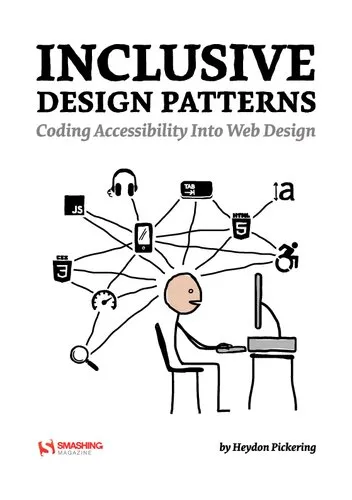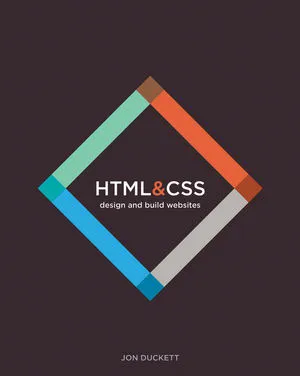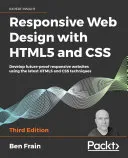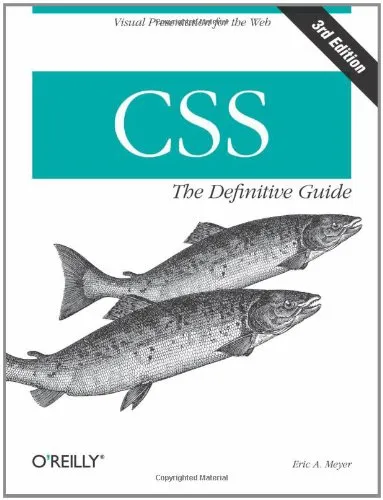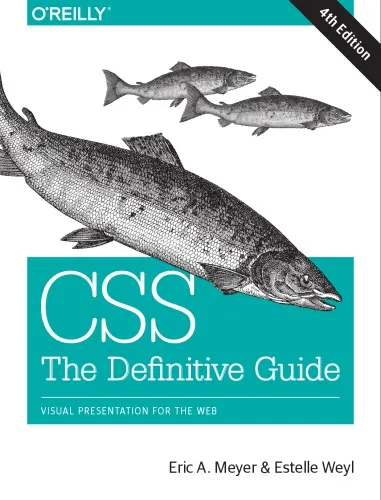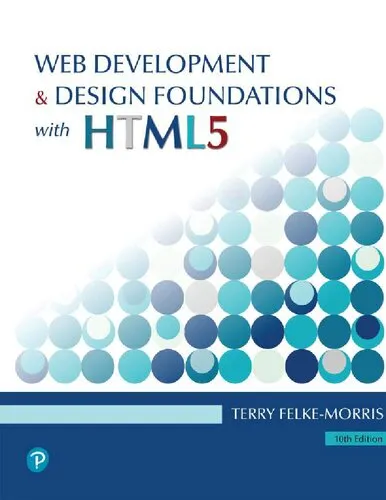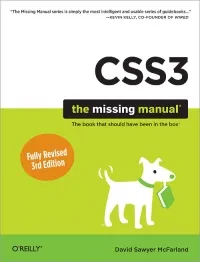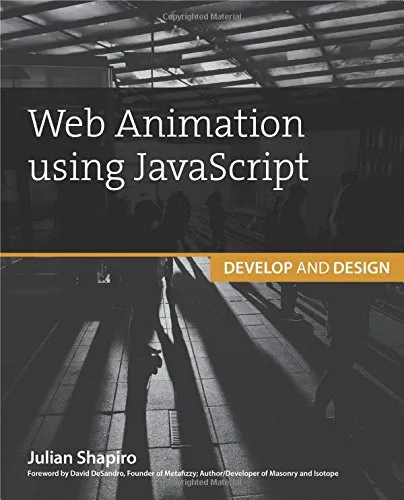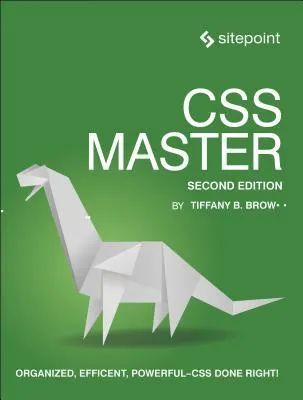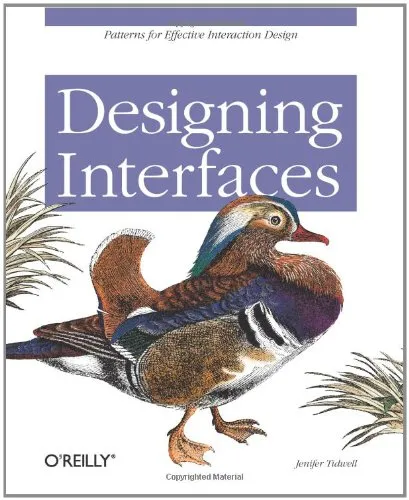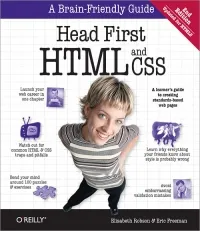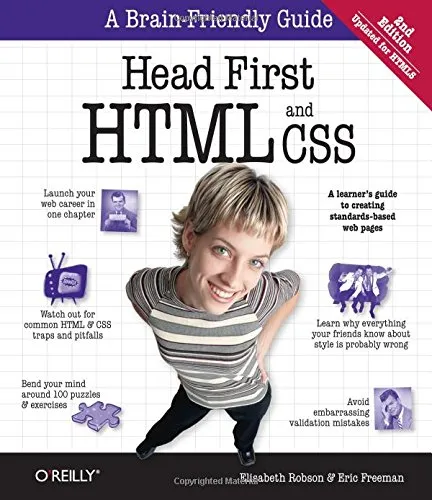Inclusive design patterns : coding accessibility into web design
4.6
بر اساس نظر کاربران

شما میتونید سوالاتتون در باره کتاب رو از هوش مصنوعیش بعد از ورود بپرسید
هر دانلود یا پرسش از هوش مصنوعی 2 امتیاز لازم دارد، برای بدست آوردن امتیاز رایگان، به صفحه ی راهنمای امتیازات سر بزنید و یک سری کار ارزشمند انجام بدینکتاب های مرتبط:
معرفی جامع کتاب "Inclusive Design Patterns"
کتاب Inclusive Design Patterns: Coding Accessibility into Web Design اثری از Heydon Pickering است که به یکی از مهمترین جنبههای طراحی وب یعنی طراحی فراگیر و دسترسپذیری میپردازد. این کتاب تنها یک راهنمای کدنویسی نیست؛ بلکه ترکیبی از فلسفه، تفکر طراحی، و دانش فنی است که به توسعهدهندگان و طراحان وب کمک میکند تا وبسایتی ایجاد کنند که برای همه افراد، از جمله افراد دارای ناتوانی یا محدودیت، قابل استفاده باشد.
خلاصهای دقیق از کتاب
در این کتاب، Heydon Pickering به ما نشان میدهد چگونه با استفاده از زبانهای HTML, CSS, و JavaScript به طور مؤثر الگوهایی بسازیم که برای همه کاربرها قابل استفاده باشند. تمرکز این کتاب بر ارائه راهکارهای ساده و ساختارمند برای ساخت وبسایتهایی است که نهتنها زیبا و کاربردی هستند، بلکه براساس اصول دسترسپذیری طراحی شدهاند. نویسنده به جای تکرار قوانینی ثابت، به طراحان و توسعهدهندگان کمک میکند تا با استفاده از استانداردها و ابزارهای موجود برای چالشهای دسترسپذیری، الگوهای خلاقانه خلق کنند.
این کتاب شامل مثالهای کدنویسی کاربردی و قابل اجراست که به مشکل بسیاری از سایتها در عدم پشتیبانی از کاربران با نیازهای خاص پاسخ میدهد. در طول فصول مختلف، نویسنده نشان میدهد چطور میتوان تجربیاتی ایجاد کرد که کاربران مختلف از جمله کاربران کیبورد، کاربران با نمایشگرهای کوچک، و کاربران با ابزارهای کمکی مانند Screen Readers نیز از آن رضایت داشته باشند.
نکات کلیدی کتاب
- اهمیت طراحی فراگیر بهعنوان بخشی جداییناپذیر از طراحی وب مدرن.
- شناسایی موانع دسترسپذیری و ارائه راهحلهای عملی برای حل آنها.
- ایجاد HTML معنایی و نقش آن در بهبود تجربهی کاربر و دسترسپذیری.
- استفاده از Progressive Enhancement در طراحی UI.
- تأکید بر استفاده صحیح از ARIA و جلوگیری از استفاده نادرست آن.
- ارائه مثالهایی از Navigation, Modals, و فرمهایی که اصول دسترسپذیری را رعایت کردهاند.
جملات مشهور از کتاب
"Accessibility isn’t about making a site that works for everyone; it’s about one that works for anyone."
"Start with accessibility in mind, and everything you build will be better for it."
"Designing for inclusion leads us to a better web for all."
چرا این کتاب اهمیت دارد
جامعه دیجیتال امروز نیازمند وبسایتهایی است که همه افراد بتوانند به آنها دسترسی داشته باشند. بیتوجهی به دسترسپذیری نهتنها باعث از دست دادن گروه بزرگی از کاربران میشود، بلکه برخلاف تلاشهای جهانی برای ایجاد انصاف و شمولیت در فضای آنلاین است. کتاب Heydon Pickering ابزاری ارزشمند برای توسعهدهندگان است تا فراتر از طراحی معمولی فکر کرده و اصول دسترسپذیری را از ابتدای فرآیند توسعه به کار بگیرند.
علاوه بر این، روش نوشتاری کتاب بسیار عملی و بدون حاشیه است. مثالهای واقعی همراه با کدنویسی مستند، این کتاب را به یک منبع قدرتمند و ضروری برای هر طراحی تبدیل کرده است که قصد دارد سایتهایی فراتر از زیباییهای ظاهری ایجاد کند.
در نهایت، Inclusive Design Patterns نهتنها دانش طراحی شما را در زمینه دسترسپذیری گسترش میدهد، بلکه به شما یاد میدهد چگونه نگاه تازهای به طراحی وب داشته باشید. این یک کتاب برای همه کسانیست که به طراحی وب کاربرمحور و مستحکم علاقه دارند.
Introduction to Inclusive Design Patterns: Coding Accessibility into Web Design
Accessibility in web design is no longer optional; it's a crucial aspect of creating a web that works for everyone. Inclusive Design Patterns is a practical, thoughtful exploration of how to craft web experiences accessible to all users, regardless of their abilities, technologies, or circumstances. Written by Heydon Pickering, this book equips web developers and designers with the tools to create websites that are functional, inclusive, and user-friendly. In a world where accessibility is often an afterthought, this book lays the foundation for making it a core design principle.
Detailed Summary
Inclusive Design Patterns is not your average design manual. It goes beyond generic guidelines and introduces readers to specific patterns and interactions that make the web easier to use for people with diverse abilities. Spanning roughly 176 pages, the book provides actionable advice and coding examples that help bridge the gap between theory and practice.
Each chapter introduces a particular challenge in accessibility and provides a corresponding design pattern to solve it. From simple tasks like creating accessible navigation menus and forms to more complex interfaces like modals and widgets, every pattern is explained with clarity and accompanied by real-world examples. The book emphasizes progressive enhancement, ensuring that designs work universally without relying on cutting-edge technologies or visual cues alone.
Throughout the book, you will find a clear commitment to creating experiences that respect users' needs, environments, and preferences. The author's conversational and empathetic tone makes relatively complex topics approachable even for those new to accessibility.
Key Takeaways
- Accessibility should not be treated as a separate entity but as an integral part of every design and development decision.
- Inclusive design doesn’t mean compromising on aesthetics or innovation. It means adapting to a more comprehensive range of users.
- Practical patterns like toggle buttons, from validating forms to designing focusable widgets, make inclusivity tangible and actionable.
- The smallest design choices—labels, color contrasts, spacing, and hierarchy—can profoundly impact usability and inclusiveness.
- Non-visual users, keyboard and assistive technology users, and users with cognitive challenges must never be seen as edge cases.
Famous Quotes from the Book
"Accessible design is good design. Good design is accessible design."
"Designing inclusively doesn't mean you're designing for a niche audience. You're designing for everyone."
"If you think you’re designing for the ‘average’ user, you’re missing all the people who don’t fall neatly into that category."
Why This Book Matters
Accessibility and inclusivity are too important to be viewed as afterthoughts in the web design process. However, for many developers and designers, incorporating accessibility principles can be challenging because of a lack of practical guidance. Inclusive Design Patterns fills that gap by providing a hands-on, pattern-based approach to accessible web development.
This book matters because it encourages a shift in mindset: instead of focusing on compliance or quick fixes, it advocates for creating long-lasting, user-centered solutions that benefit a diverse audience. By addressing a range of use cases and user needs, it provides a road map for anyone aiming to build an ethical, future-proof web.
Ultimately, this book empowers creators to make well-thought-out design decisions, ensuring that the web remains accessible and enjoyable for everyone. It’s not just a guide—it’s a call to action for embracing empathy and inclusivity as essential parts of the design process.
دانلود رایگان مستقیم
شما میتونید سوالاتتون در باره کتاب رو از هوش مصنوعیش بعد از ورود بپرسید
دسترسی به کتابها از طریق پلتفرمهای قانونی و کتابخانههای عمومی نه تنها از حقوق نویسندگان و ناشران حمایت میکند، بلکه به پایداری فرهنگ کتابخوانی نیز کمک میرساند. پیش از دانلود، لحظهای به بررسی این گزینهها فکر کنید.
این کتاب رو در پلتفرم های دیگه ببینید
WorldCat به شما کمک میکنه تا کتاب ها رو در کتابخانه های سراسر دنیا پیدا کنید
امتیازها، نظرات تخصصی و صحبت ها درباره کتاب را در Goodreads ببینید
کتابهای کمیاب یا دست دوم را در AbeBooks پیدا کنید و بخرید
1366
بازدید4.6
امتیاز0
نظر98%
رضایتنظرات:
4.6
بر اساس 0 نظر کاربران
Questions & Answers
Ask questions about this book or help others by answering
No questions yet. Be the first to ask!
